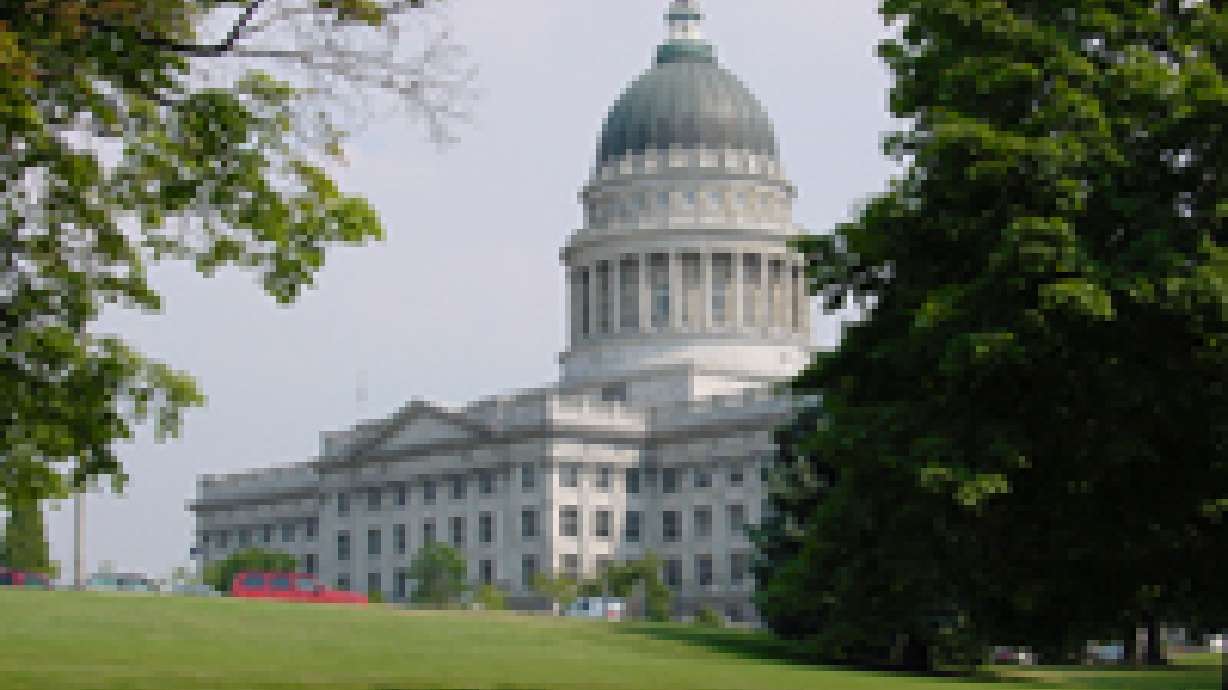Estimated read time: 3-4 minutes
This archived news story is available only for your personal, non-commercial use. Information in the story may be outdated or superseded by additional information. Reading or replaying the story in its archived form does not constitute a republication of the story.
SALT LAKE CITY (AP) -- The Utah Legislature's top leaders are pushing different plans for eliminating the sales tax on store-bought food -- a stalemate that could block any tax relief from taking effect.
The House would compensate for the loss of revenue from the food tax by raising the sales tax rate half a percentage point on all other consumer goods. The Senate says the state can afford to kill the food tax outright, without any compensation.
House Speaker Greg Curtis, R-Sandy, said the House plan has the support of a majority of its 75 representatives, including Republicans and Democrats. Curtis and Majority Whip Steve Urquhart, R-St. George, came out with the plan in last-minute deliberations over tax reform that have kept legislators busy over summer.
"I personally won't support it," said Senate President John Valentine, R-Orem, who is trying to head off any tax hike that comes out of larger tax reforms.
Valentine said eliminating the food tax would reduce state revenue by $225 million a year, an amount he said can be made up with anticipated tax revenue growth in fiscal 2006-2007 and cuts in state programs.
Valentine made his proposal after Curtis and Urquhart surprised many legislators a week ago by resuscitating the idea of getting rid of the tax on store-bought food, possibly Utah's most hated tax. Proposals to kill it have failed in the Legislature for years because of the cost to the state treasury, but the idea could get a boost in 2006, an election year for all 75 House members and 14 senators.
Some observers see Valentine's counterproposal as destined to fail, but also blocking the House plan from taking effect and keeping Utah's tax on unprepared food without change.
Valentine said the Legislature may end up supporting a plan that that developed over summer but satisfies few lawmakers -- giving low-income taxpayers a $75-per-person credit on their tax returns in lieu of an across-the-board cut.
Gov. Jon Huntsman, who campaigned on a platform to repeal the food tax, says he will introduce a specific plan before a legislative task force retires on Nov. 28.
"We are crunching the numbers right now," said Huntsman deputy chief of staff Mike Mower.
Legislators have been meeting several times a month since spring to debate changes for income, sales and property taxes. The task force traveled the state in October holding public hearings. Dozens of proposals have been discussed. Valentine likened the deliberations to "squeezing warm Jell-O" through the fingers and dealing with the mess.
Curtis' plan would raise the state sales tax on nonfood items by 0.5 percentage points and the local-option sales tax by 0.1 percentage points, driving the base sales tax rate to 6.35 percent from 5.75 percent.
That would amount to a $60 million a year tax hike on Utah businesses who buy supplies and materials but not much food, says the business-backed Utah Taxpayers Association.
Curtis disputes the figure, saying it will be less, but even if it wasn't, the Republican-controlled Legislature "has been very, very good to business" for decades, he said. "We've given them a number of tax breaks, including the manufacturer's (sales tax) exemption."
Because the food tax is so unpopular, Curtis believes the business lobby will drop any opposition in the final analysis.
------
Information from: Deseret Morning News, http://www.deseretnews.com
(Copyright 2005 by The Associated Press. All Rights Reserved.)









